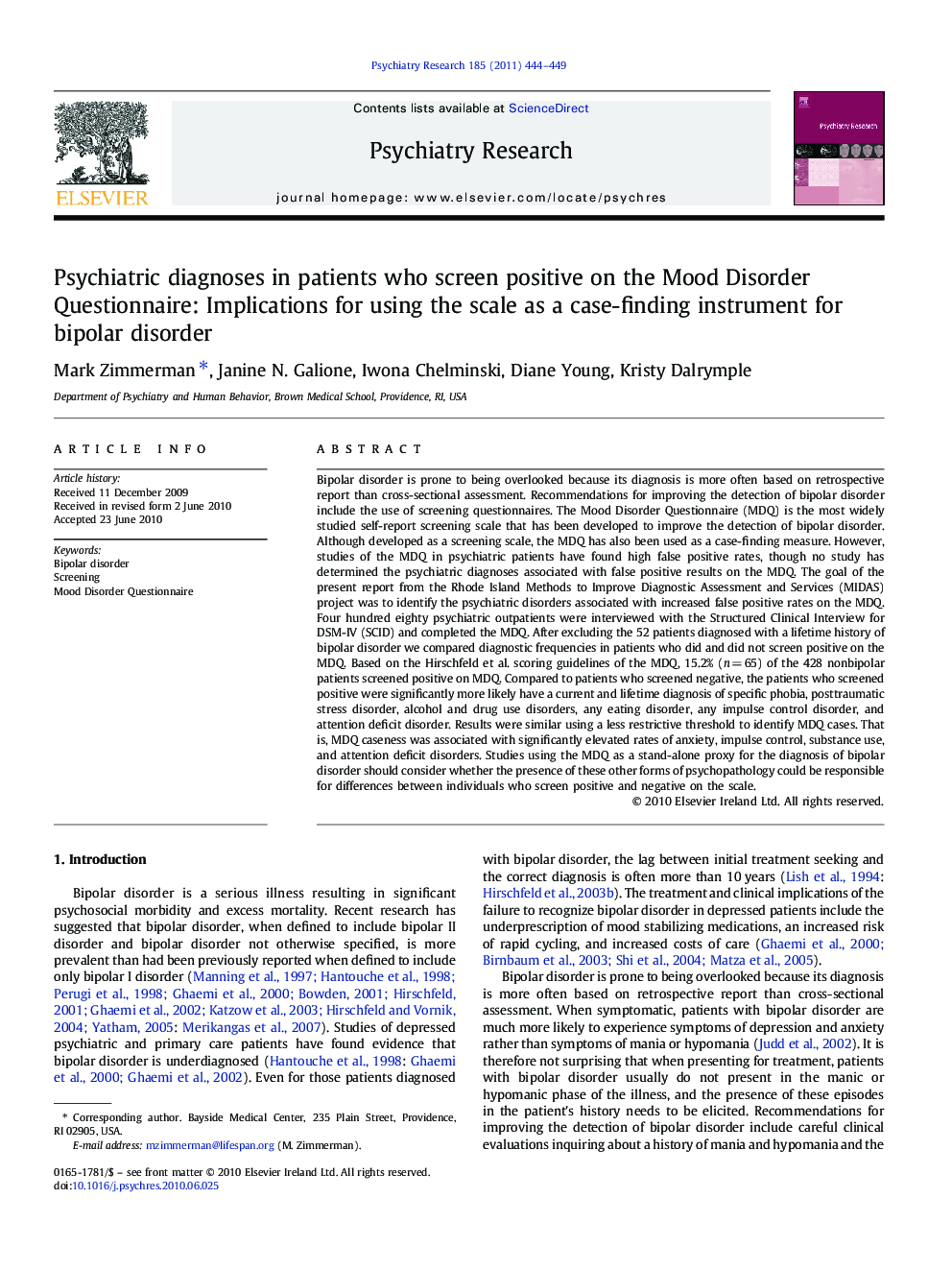| کد مقاله | کد نشریه | سال انتشار | مقاله انگلیسی | نسخه تمام متن |
|---|---|---|---|---|
| 333877 | 545983 | 2011 | 6 صفحه PDF | دانلود رایگان |

Bipolar disorder is prone to being overlooked because its diagnosis is more often based on retrospective report than cross-sectional assessment. Recommendations for improving the detection of bipolar disorder include the use of screening questionnaires. The Mood Disorder Questionnaire (MDQ) is the most widely studied self-report screening scale that has been developed to improve the detection of bipolar disorder. Although developed as a screening scale, the MDQ has also been used as a case-finding measure. However, studies of the MDQ in psychiatric patients have found high false positive rates, though no study has determined the psychiatric diagnoses associated with false positive results on the MDQ. The goal of the present report from the Rhode Island Methods to Improve Diagnostic Assessment and Services (MIDAS) project was to identify the psychiatric disorders associated with increased false positive rates on the MDQ. Four hundred eighty psychiatric outpatients were interviewed with the Structured Clinical Interview for DSM-IV (SCID) and completed the MDQ. After excluding the 52 patients diagnosed with a lifetime history of bipolar disorder we compared diagnostic frequencies in patients who did and did not screen positive on the MDQ. Based on the Hirschfeld et al. scoring guidelines of the MDQ, 15.2% (n = 65) of the 428 nonbipolar patients screened positive on MDQ. Compared to patients who screened negative, the patients who screened positive were significantly more likely have a current and lifetime diagnosis of specific phobia, posttraumatic stress disorder, alcohol and drug use disorders, any eating disorder, any impulse control disorder, and attention deficit disorder. Results were similar using a less restrictive threshold to identify MDQ cases. That is, MDQ caseness was associated with significantly elevated rates of anxiety, impulse control, substance use, and attention deficit disorders. Studies using the MDQ as a stand-alone proxy for the diagnosis of bipolar disorder should consider whether the presence of these other forms of psychopathology could be responsible for differences between individuals who screen positive and negative on the scale.
Journal: Psychiatry Research - Volume 185, Issue 3, 28 February 2011, Pages 444–449